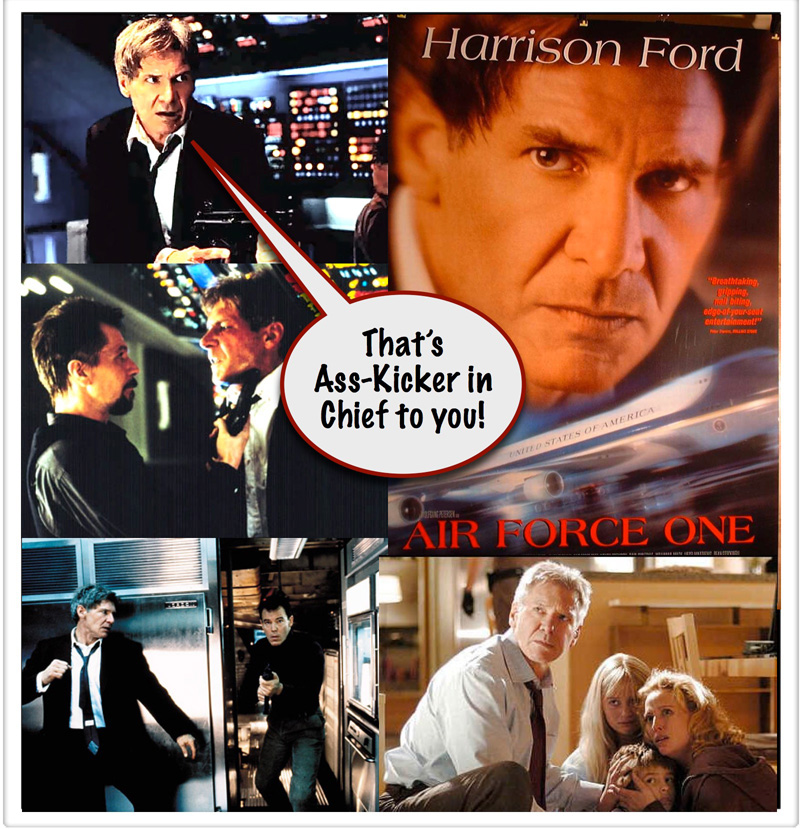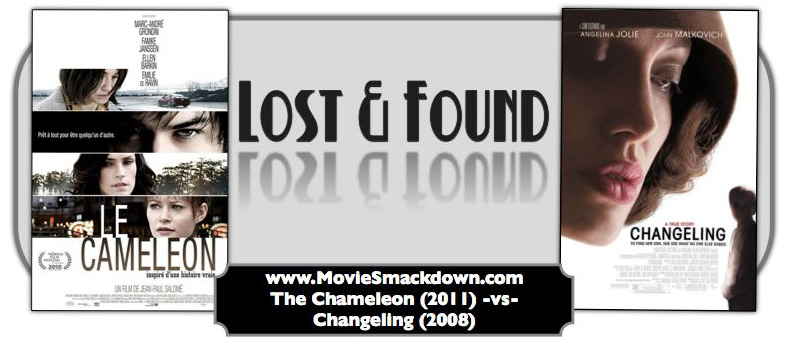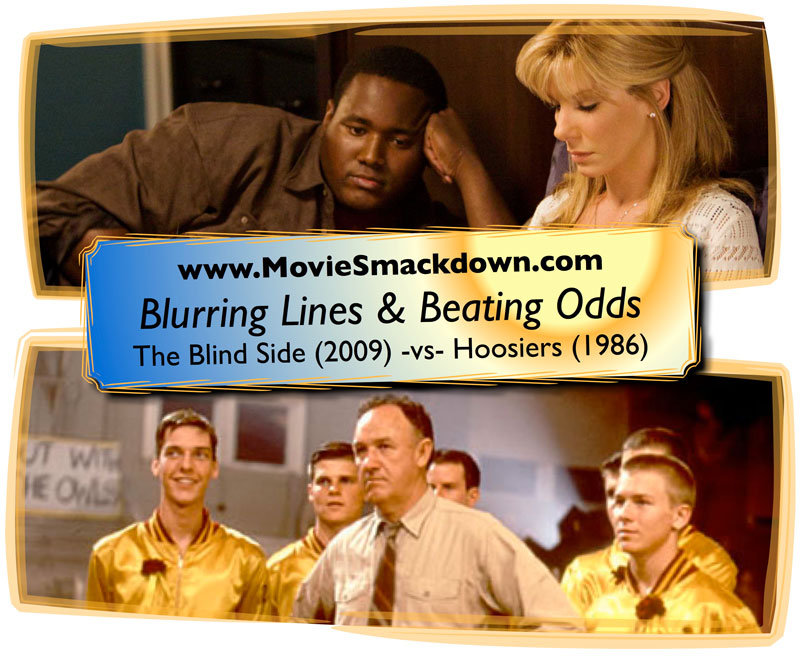 The Smackdown
The Smackdown
As the nation holds its collective breath, waiting for Inauguration Day and the end of the long national nightmare that was the Bush administration, Richard Nixon lurches into the multiplex to remind us all of another horrible yet riveting chapter of American history. As Tricky Dick’s dramatized Doppelganger garners a slew of award nominations and critical kudos and the real W scrambles mightily to repair his legacy, we make a wish for the rapid and full restoration of criminally bent (if not irrevocably broken) International and Constitutional law. And while we take a moment to fully appreciate term limits, we ponder this little awards season headscratcher: Nixon or W? The lesser (or greater) of two evildoers?
[singlepic id=669 w=320 h=240 float=right]
The Challenger
Ron Howard’s Frost/Nixon (2008) beautifully captures Michael Sheehan’s and Frank Langella’s much-lauded portrayals of the title characters as played previously on Broadway and London’s West End. The film started shooting only a week after the play closed; its screenplay is a worthy adaptation by its playwright Peter Morgan. Few plays make it to screen so fully intact, and the audience owes a huge debt of
gratitude for whatever behind-the-scenes dealmaking resulted in such a rare gift. Langella has already earned a Tony and a Drama Desk award and an Outer Critics Circle award, and he seems a sure bet to add an Academy Award nomination to his collection. Sheehan more than holds his own as Frost; it’s not for nothing that Frost’s name appears first in the title. The subject of the film is Frost’s groundbreaking series of televised interviews that ended with Tricky Dick’s game-changingly cathartic admission of guilt regarding his role in the Watergate scandal. Even though we know exactly how this one ends, the dramatic tension sustains.Â
[singlepic id=720 w=320 h=240 float=right]
The Defending Champion
Oliver Stone’s W. (2008) takes viewers through a picaresque and non-linear tour of Bush’s eventful life, an investigation of a spoiled rich kid blessed with everything but moral and intellectual rigor — his (selective) struggles and triumphs, how he found both his wife and his faith, and the critical days leading up to Bush’s real life Dr. Strangelove moment – his fateful decision to invade Iraq. I’ve been down this road before with the lastest “W.” when I smacked it down against All the President’s Men. Did Bush get bashed, or did Woodstein get the scoop? Check it out.
The Scorecard
Frost/Nixon is not simply a play transferred to film. Significantly and intelligently opened up, preserving the power and undiminished intimacy, Ron Howard fills the screen with felt life and subtle and accurate period detail, blending well-used archival footage. In a masterstroke of casting, Oliver Platt and Sam Rockwell deliver their usual lived-in, impeccably comic performances and land well-earned laughs throughout. We are drawn into the drama and high risk of all the players in this drama, not only the principals. That said, Langella’s performance is a true revelation; his Nixon is brilliant, complex, and fully realized. He captures not only the man’s physical awkwardness but something unsettling and irreparably broken in his soul. Sheehan’s Frost is another tour de force; without a real physical resemblance, he manages to convey Frost’s deeper and far more interesting inner depths, and his vocal impression approaches mastery. Dynamically directed, intricately plotted and masterfully acted, we come to learn more about the actual inside-baseball machinations and deal-making than we thought we wanted to know; the Frost/Nixon interviews are such a part of our historical DNA that we may forget the story. Much of the film tracks the unfolding scandal of checkbook journalism and high stakes bluffing. When the handful of existing national networks refused to fund and broadcast the interviews, doubting their newsworthiness, Frost patched together a syndication network and funded it himself and with the help of his friends. The final interview becomes a true clash of titans; the two men fight for their lives, their salvation, their rehabilitation, their worth. It’s a struggle well worth watching; echoes of Tricky Dick’s malfeasance ring familiar in our current climate, and there are lessons history wants to teach us that we are regrettably slow to learn.
Josh Brolin’s W. is a man of no gravitas; his portrayal is accurate enough, and the rest of the cast afford easy visual references to the players strutting on our national stage, a sort of shorthand physical resemblance achieved with few prosthetics. Oliver Stone’s mission was to tell the story of a mostly unexamined life, highlighting the unconvincing religious conversion of a limited man. Ultimately, W. remains a rather tepid and halfhearted biopic that pulls its punches; perhaps history told well needs more distance to land with real impact.
The Decision
An hour into Frost/Nixon, I wondered aloud whether Frost could interview our current War-Criminal-in-Chief. The gripping drama of Nixon’s fall dwarfs the puny grasping evil of W’s. Nixon’s accomplishments in foreign affairs and a long career of public service are undone by his paranoia and grand delusions. Nixon was a big man made small, a powerful intellect and statesman whose need for absolute power brought him low. W is a small man made big; his last months in office all petulance and tantrum — he’s a nihilistic rocker trashing a hotel room on the way out. Failure follows him everywhere; how could it not? W leads an unexamined life and possesses a uniquely unreachable conscience. Even Frost couldn’t wrest a confession from him; W has no insights into himself or anything else. Intellectually lazy and incurious, an idealogue devoid of doubts — this empty and ambitious vessel makes the most dangerous kind of leader. (Be forewarned; another lurks on the Alaskan horizon — similarly unprepared and equally undaunted. Be afraid. Be very afraid.) While Josh Brolin brings this dangerous cipher to life, it’s not the most interesting life to behold on film or anywhere else. His button eyes reveal nothing; W is ultimately no more than a smirking chimp, a complacent careless felon, a world-ruining stooge. Such drama cannot sustain. The two antagonists of Frost/Nixon reveal more in any scene than W. has to hide. Frost/Nixon. No contest.




We just watched W. “On Demand” on the U-Verse. Oliver Stone runs hot and cold as a director but this one was just cold, cold, cold. It felt like it was just “this close” to a Saturday Night Live sketch, most of the casting was bad, but its main flaw was incomprehensible filmmaking that didn’t really add up to a story. When it did try to make a point, it was heavy handed. The rest of the time it was just weird. This “W.” gets an “F.”
I completely agree…Frost/Nixon was much better then W.
Not saying W. wasn’t a strong film. I just think Frost/Nixon was a better film.
Nixon at least had to leave office early. Bush got eight years.
Bryce: I see your point about the unlikelihood that Frost prepped the night before. In fact, I think the screenwriter/playwright should take some heat over the decision to raise the third act stakes with that implausible plot point. Within the reality of the film though, I think it’s easy to understand why Frost’s need for definitive closure on the Watergate matter came a bit later than it did for Reston and Zelnick. Having worked behind-the-scenes on talk shows, it’s not hard for me to believe cramming might not be Frost’s preferred strategy, born of habit and expediency.
Just watched this film on a DVD given us because of my DGA membership, and thought it was beautifully done. Langella’s performance was wonderful. I did keep wondering, though, how Frost — given that he bet all his chips on this TV event — then treated it so cavalierly in terms of preparation until the night before when he crams like a schoolboy before a mid-term. I think it loses authenticity for me in that. Having not seen “W.” I can’t say that it should have won the Smackdown, but it wouldn’t surprise me if I actually end up liking it better when I see it.
Saw both films and Coben’s appraisal hits the bulls-eye. Always enjoy reading her reviews, but this one’s one of her best. Keep ’em coming.